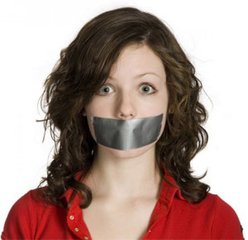
Could You Have Bad Breath and Not Know It?
By Wyatt Myers | Medically reviewed by Lindsey Marcellin, MD, MPH
The only thing worse than having bad breath is not knowing you have it.
Nobody wants to think that he or she has bad breath, medically known as halitosis. But according to Jonathan B. Levine, DMD, an associate professor at the NYU School of Dentistry, more than half of us suffer from it.
“Most people do have bad breath and just do not know it,” he says.Walking around with bad breath is obviously something that most people would prefer to avoid. But before you can cure bad breath, you need to be able to tell if you have it.
Know the Signs of Bad Breath
Actually, Dr. Levine and other dental experts believe there is quite a lot that can be done about bad breath, and most of the tips to halt halitosis are quite simple. It all starts with looking out for the subtle (and not-so-subtle) signs of bad breath:
You sleep with your mouth open. According to Levine, sleeping with your mouth open is a surefire way to dry out your mouth. And a dry mouth will cause halitosis. Often, people who sleep with their mouth open are having trouble breathing through their nose, so addressing any allergy or nasal issues before bed might be a good place to start. You also might find working with a sleep specialist helpful.
You smoke or chew tobacco. Both of these bad habits also are guaranteed to give you bad breath. “They decrease the amount of saliva in your mouth,” says Levine. “Saliva contains oxygen, which keeps your mouth healthy and fresh.” Here, the answer is obvious: Quit!
You have a white-coated tongue. This is a predictable sign of bad breath. “That white coating is comprised of sulfur compounds that have risen to the tongue’s surface and cause bad breath,” explains Levine.
You have gastric reflux. The churning acid produced by gastric reflux is not only uncomfortable but can also lead to bad breath. “Unfortunately, gastric reflux results in bad breath in a way that’s hard to solve,” Levine says. “Ask your doctor about prescribing a medication to get this condition under control.”
You eat suspect foods. “In the end it’s true: You breathe what you eat,” says Levine. “High-protein foods, coffee, onions and garlic, sugar, acidic foods and drinks, and dairy products all result in worse breath because they create an environment for the bad bacteria to grow. It needs to be balanced with fruits, veggies, and alkalinizing good foods.”
You take certain prescription or OTC medications. A number of medications can cause dry mouth as a side effect, which in turn can lead to bad breath. In these situations, you can ask your doctor if any alternatives exist to your current medications, prescription or over-the-counter, that might help with the problem.
How to Tell If You Have Bad Breath
Now that you know the signs, there’s a simple trick to test your breath for yourself. “Take a minute and try this easy Bad Breath Self Awareness Test," suggests Levine. "Wipe the surface of your mouth with a piece of cotton gauze and smell that. If you notice a yellowish stain on the cotton, that’s a likely sign that you have an elevated sulfide production level. Now, lick the back of your hand. Let it dry for about 10 seconds, then smell. If you notice an odor, you have a breath disorder because the sulfur salts from your tongue have been transferred to your hand.”
Another approach is to get an unbiased opinion. “Ask someone you trust who will give you an honest answer,” says Dan Marut, DMD, a dentist based in Ashland, Ore., who's the president and founder of Quality Dental Plan. “You can always ask a dental professional as well. Many times people are embarrassed to ask, and others are afraid to tell them. Your mouth is a very personal space — talking about it is not always easy.”
http://www.everydayhealth.com/dental-health/could-you-have-bad-breath-and-not-know-it.aspx
By Wyatt Myers | Medically reviewed by Lindsey Marcellin, MD, MPH
The only thing worse than having bad breath is not knowing you have it.
Nobody wants to think that he or she has bad breath, medically known as halitosis. But according to Jonathan B. Levine, DMD, an associate professor at the NYU School of Dentistry, more than half of us suffer from it.
“Most people do have bad breath and just do not know it,” he says.Walking around with bad breath is obviously something that most people would prefer to avoid. But before you can cure bad breath, you need to be able to tell if you have it.
Know the Signs of Bad Breath
Actually, Dr. Levine and other dental experts believe there is quite a lot that can be done about bad breath, and most of the tips to halt halitosis are quite simple. It all starts with looking out for the subtle (and not-so-subtle) signs of bad breath:
You sleep with your mouth open. According to Levine, sleeping with your mouth open is a surefire way to dry out your mouth. And a dry mouth will cause halitosis. Often, people who sleep with their mouth open are having trouble breathing through their nose, so addressing any allergy or nasal issues before bed might be a good place to start. You also might find working with a sleep specialist helpful.
You smoke or chew tobacco. Both of these bad habits also are guaranteed to give you bad breath. “They decrease the amount of saliva in your mouth,” says Levine. “Saliva contains oxygen, which keeps your mouth healthy and fresh.” Here, the answer is obvious: Quit!
You have a white-coated tongue. This is a predictable sign of bad breath. “That white coating is comprised of sulfur compounds that have risen to the tongue’s surface and cause bad breath,” explains Levine.
You have gastric reflux. The churning acid produced by gastric reflux is not only uncomfortable but can also lead to bad breath. “Unfortunately, gastric reflux results in bad breath in a way that’s hard to solve,” Levine says. “Ask your doctor about prescribing a medication to get this condition under control.”
You eat suspect foods. “In the end it’s true: You breathe what you eat,” says Levine. “High-protein foods, coffee, onions and garlic, sugar, acidic foods and drinks, and dairy products all result in worse breath because they create an environment for the bad bacteria to grow. It needs to be balanced with fruits, veggies, and alkalinizing good foods.”
You take certain prescription or OTC medications. A number of medications can cause dry mouth as a side effect, which in turn can lead to bad breath. In these situations, you can ask your doctor if any alternatives exist to your current medications, prescription or over-the-counter, that might help with the problem.
How to Tell If You Have Bad Breath
Now that you know the signs, there’s a simple trick to test your breath for yourself. “Take a minute and try this easy Bad Breath Self Awareness Test," suggests Levine. "Wipe the surface of your mouth with a piece of cotton gauze and smell that. If you notice a yellowish stain on the cotton, that’s a likely sign that you have an elevated sulfide production level. Now, lick the back of your hand. Let it dry for about 10 seconds, then smell. If you notice an odor, you have a breath disorder because the sulfur salts from your tongue have been transferred to your hand.”
Another approach is to get an unbiased opinion. “Ask someone you trust who will give you an honest answer,” says Dan Marut, DMD, a dentist based in Ashland, Ore., who's the president and founder of Quality Dental Plan. “You can always ask a dental professional as well. Many times people are embarrassed to ask, and others are afraid to tell them. Your mouth is a very personal space — talking about it is not always easy.”
http://www.everydayhealth.com/dental-health/could-you-have-bad-breath-and-not-know-it.aspx

 RSS Feed
RSS Feed